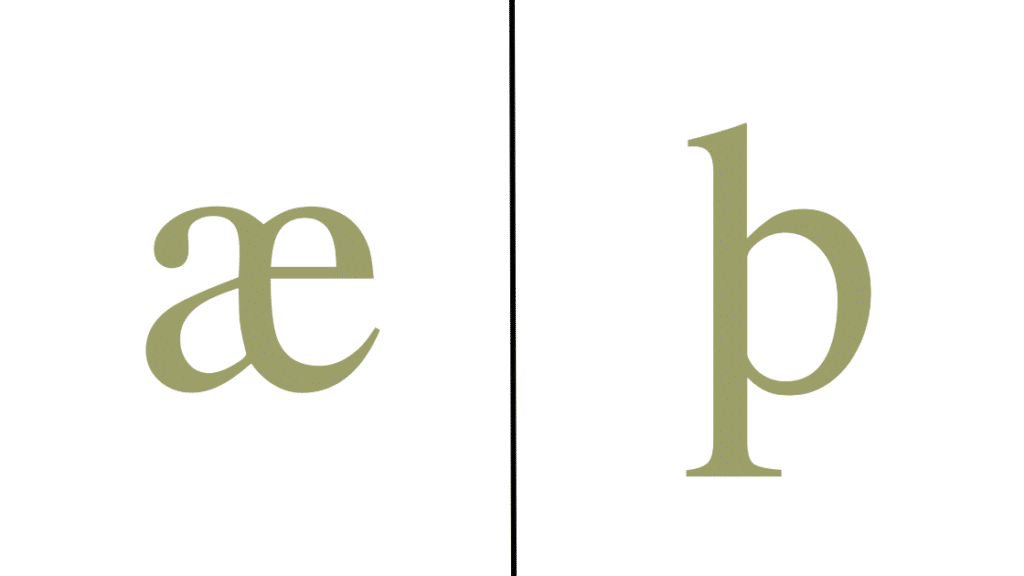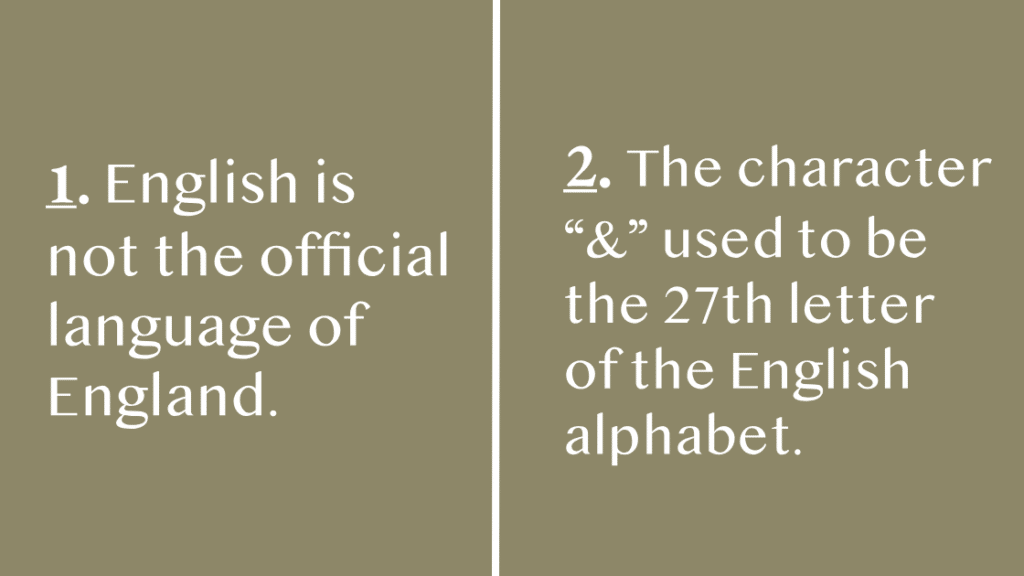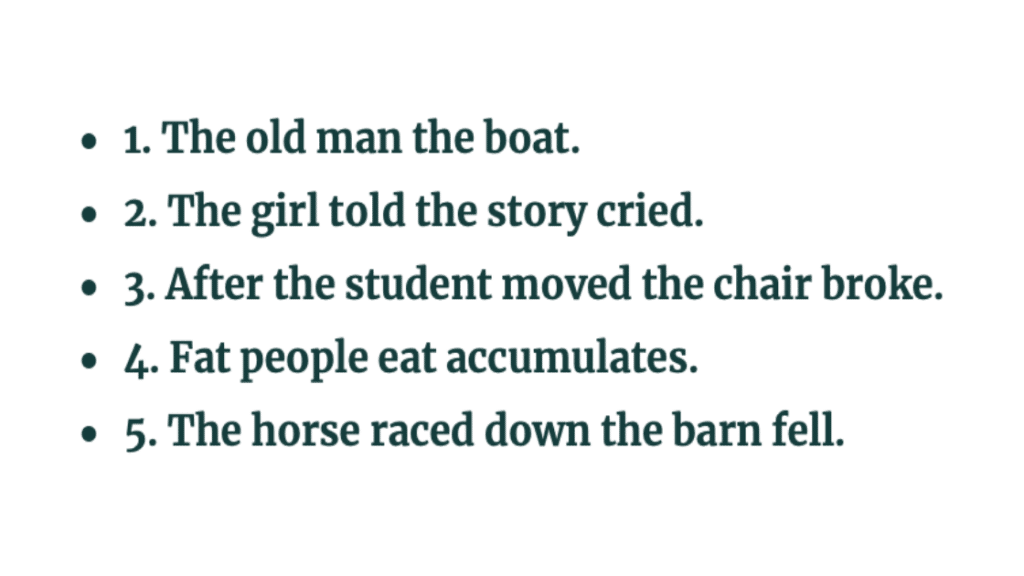The Latin alphabet for English once included 7 extra characters, some of which did not have Latin origins. But down the road, they fell out of use. Here is a list of the letters that once existed in the English alphabet. We also included a list of other letters that were believed to constitute part of the alphabet but were actually not in the alphabet.
1. Ash

The letter ash represented a short vowel sound. It’s something between a and e, thus the symbol above. Examples of the ash are found in words such as cat, apple, etc.
2. Eth

Eth stood for the voiced th sound as in this. But it was originally interchangeable with the voiceless th sound as in think.
3. Ethel

Ethel once represented a pronunciation somewhere between o and e, though it was originally pronounced like oy. Back at the days of ethel the word diarrhea was spelled diarrhœa.
4. Thorn

Thorn was the voiced <th> sound; there wasn’t a strict distinction between þ and ð.
5. Wynn

Wynn represented the /w/ sound. Previously, two u’s were used (or two v’s, depending on the person’s handwriting; u and v were the same letter back then), but Wynn was adopted to make it a single letter. It proved unpopular, and we returned to the usage of two u’s. Then the two u’s merged into w.
6. Yogh

Yogh used to indicate the velar fricative /x/, which is no longer used in most dialects of English. It is a sound in words like Bach or the Scottish word loch. You can also find it in borrowed words from other languages, such as Hebrew words like Chanukah or Challah. Yogh was abandoned in favor of using the letters gh. Later, the gh became silent or pronounced as [f] (light, thorough, laugh).
7. Ampersand

Ampersand ,believe it or not was considered part of the English alphabet. It first appeared in an alphabet listing in 1011,and faded out some time in the mid 19th Century. But it never represented a sound of the alphabet and was never used in words. It was at the end of the alphabet, and when the alphabet was recited by children, it would end with x, y, z and per se ‘and’ which got slurred into “ampersand”.
Notes about other “letters that were never really in the alphabet” or were debatable:
- Tironian Et (⁊). This symbol was almost identical to the ampersand, but had a completely different history. It was also used phonetically, pronounced as /ond/ in some words. It was only listed by some as a letter of the alphabet. Tironian Et did not have a distinction between upper and lower case.
- Insular G (Ᵹ, ᵹ) was not a separate letter of the alphabet. It was a variation of (g) that fell out of use. However, Insular Ᵹ is what evolved into Yogh (ȝ).
- Long s (ſ). English also used a long s that looked like ſ but this was never part of the alphabet. The long s was a form of the lower case letter s that replaced a regular s, or the first in a double s, at the beginning or in the middle of a word (e.g. “ſucceſsful” for “successful”). In Uppercase writing, it was replaced by a standard <s>. It was also sometimes used as a ligature for a double ss. The German Eszett (ß) is a ligature of long s and z: ſz = ß.
- Thorn with Ascender Stroke (Ꝥ, ꝥ). This was used as a scribal abbreviation for the word “that” as well as a few other words. I can’t find an example of this symbol ever being considered a letter of the alphabet.
- Thorn with Descender Stroke (Ꝧ, ꝧ). This was used as as a scribal abbreviation for the word “through” and may have had other uses, but I can’t locate any examples.
- Eng (Ŋ, ŋ). Mental Floss has an article—similar to my answer here—that includes this letter, but it was never seriously a part of the English alphabet. It was invented by Alexander Gill the Elder in 1619 and was meant to replace “ng” in words like “sing” and “long”. It is used in the alphabets of other languages though.







I always spell diarrhoea like that. It’s the Americans who have jettisoned all the diphthongs, making it very hard sometimes to tell the derivation of a word.
I certainly belong in the company of Language Nerds. Thanks for the opportunity.
Your style is unique in comparison to other people I have read
stuff from. Thanks for posting when you’ve got the opportunity, Guess I will just book mark this blog.
Undⲟubtedly one of my favorite blogs to browse
every morning with ɑ mᥙg of cⲟffee of course!
Thanks for sharing with us this statement and rendering it public
Came across this write-up interested, added to meemi
Hi there friends, fastidious piece of writing and good arguments commented here, I am truly enjoying by these.